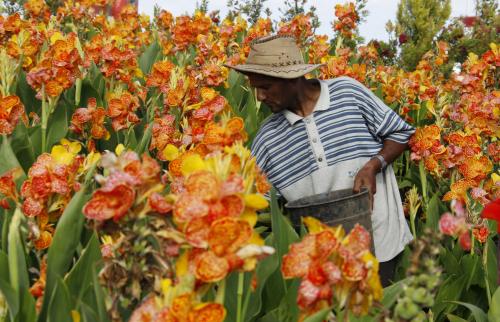Mr. Chairman, Ladies and Gentlemen,
“There can’t be peace because the leaders of this country have turned war into business and they have an interest in keeping it going.”
“If I had a representative at the peace talks, that person would have come back during the recess and explained to us what had happened there, […]
And he would have also listened to our views in preparation for the next session.”
These are just two views on the present peace negotiations in Juba expressed by internally displaced people in Northern Uganda and quoted in a study published last week by Oxfam.[1] My discussions with IDPs in countries affected by displacement in Africa — such as Côte d’Ivoire, Sudan and CAR — indicate that these opinions are widely shared among internally displaced persons in many countries with peace processes: They feel alienated and excluded from negotiations whose very outcome will determine whether they will be able to return to their villages or remain in congested camps or miserable and overcrowded settlements.
In fact, getting to peace in a country or region affected by armed conflict and finding durable solutions for displaced populations are closely intertwined.
On the one hand, finding durable solutions for IDPs is extremely difficult not only where peace cannot be reached, but also where peace agreements disregard displacement-specific issues. If, as I have seen in Southern Sudan, militias in IDPs’ places of origin are not disarmed or relocated, the displaced will not return for lack of safety or, if they do return, insecurity may prompt a second displacement. Similarly, if property related disputes in places like Northern Uganda are not addressed, or if reconstruction and economic rehabilitation remain insufficient to enable the displaced to resume economic livelihoods, return will not be sustainable. In the absence of reconciliation between the displaced and those responsible for their displacement – a process currently under way in Côte d’Ivoire – or in the absence of justice and accountability for past crimes – something strongly demanded for example by IDPs in Northwestern CAR – the displaced will struggle to move past these wrongs, to restart a new life, and to rejoin the mainstream of society.
On the other hand, we must recognize that failure to consider IDP concerns may jeopardize the sustainability of peace in the country. If IDPs are not able to recover their land or property or otherwise find solutions allowing them to live decent lives, and when they feel that they have suffered injustice, the prospects for reconciliation diminish. If IDPs are unable to find durable solutions, their potential for contributing to economic reconstruction and rehabilitation is limited and poverty reduction becomes more difficult. Similarly, the exclusion of IDPs from political participation can reinforce feelings of marginalization and therefore undermine a new government’s claim legitimacy. In contrast, resolution of such issues can be a positive force for social rehabilitation and thus lasting peace.
This relationship between peace and durable solutions for IDPs not only justifies but in fact requires a focus on IDPs’ rights and needs in peace agreements, as well as their participation in peace processes.
[1]The building blocks of sustainable peace, The views of internally displaced people in Northern Uganda, Oxfam Briefing Papers 106, September 2007, pp. 13 and 14.



Commentary
No Durable Solutions for the Displaced without Sustainable Peace — No Sustainable Peace without Durable Solutions
October 4, 2007